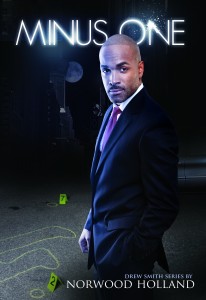Mysticism in Latino Writing
November 20, 2011
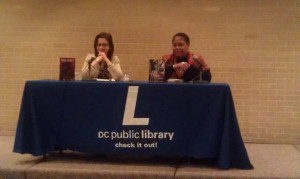
The MLK Library presented a Saturday afternoon book discussion on Mysticism in Latino Writing featuring authors Lyn Di Iori and Dahlma Llanos Figeroa. The authors discussed the role of mysticism in their novels. Lyn Di Iori’s Outside the Bones and Dahlma Llanos-Figueroa’s Daughters of the Stone are both receiving rave reviews. Iori’s Outside the Bones is an erotically charged ghost story set in both present-day New York and Puerto Rico. Praised as her brilliant debut novel it takes a mesmerizing look at issues of race, class, power and greed with Afro-Caribbean witchcraft rituals deftly woven through a sixteen year mystery unraveling a woman’s disappearance.
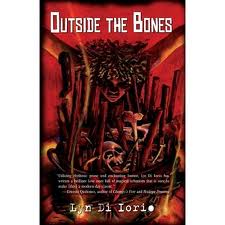 Figueroa’s Daughters of the Stone follows a sacred stone handed down five generations used to invoke mystical powers and rituals of the old ones. A rich sensual tale of mothers and daughters, love and sorrow, hardship and pride the novel through conjuring up the spirits renders a magical, deeply real, and vividly told story surrounding diasporic people.
Figueroa’s Daughters of the Stone follows a sacred stone handed down five generations used to invoke mystical powers and rituals of the old ones. A rich sensual tale of mothers and daughters, love and sorrow, hardship and pride the novel through conjuring up the spirits renders a magical, deeply real, and vividly told story surrounding diasporic people.
Both authors of Puerto Rican descent have chosen to raise the voice of the American Latina, half of the nation’s largest growing ethnicity, a segment of our culture not often heard. The powers of the Santeria, a religious practice with its African origins and Catholic influences and Puerto Rican spiritualism lie at the heart of both novels. Highly talented both authors continue a renaissance of award winning Latina writers exposing an American experience so long overlooked.
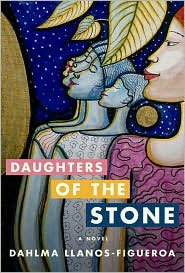
It has been said “Latina writers are powerful and seductive in their works. Their writings encompass the feelings women have in different situations, from dealing with a male-dominated society to family relationships.” No doubt the same can be said of the works of Iori and Dahlma. After readings the discussion ended with the interested patrons peppering the authors with questions about their themes, writing habits, and the Puerto Rican experience.
MLK Librarian Kathy Jenkins ended the program enthusiastically promising future similar author events. MLK Library and MahoganyBooks partnered in producing the program with the support of More Than Words (www.morethanwordsliterary.com) and Go On Girl! Book Club and Las Comadres.
Streaming Occupy Wall Street
November 17, 2011
Hurston and Hurst: Setting the Record Straight
November 10, 2011
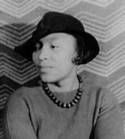
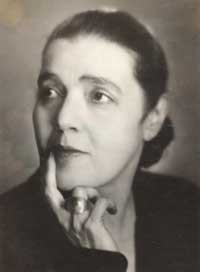
A big fan of Turner Movie Classics at some moment last month I became interested in Fannie Hurst learning she was the source of some my favorite movies Four Daughters, Humoresque, Backstreet and not the least of which Imitation of Life. A cursory internet search revealed that Zora Neale Hurston worked as Fannie Hurst’s maid while another article stated she was a friend and secretary. A student of the Harlem Renaissance and African American Literature my interest grew more intense in the Hurst/Hurston relationship and their interaction with Harlem Renaissance photographic chronicler Carl Van Vechten. Their interconnectedness will be fertile ground for literary scholars in years to come, but I had a more pressing question. Which was it, secretary, friend or maid? I suspected a bit of all three, and tilling the rich details of my research suspicions were confirmed.
Fannie Hurst was the first female to earn lucrative pay writing short stories at the beginning of the 20th century. Coveted magazines like McCalls and Cosmopolitan and publishers like Hearst newspapers fiercely competed for her stories the early subjects of which where tales of boarders, German-Russian-Jewish immigrants and the $12 a week shop girls probing their loves, dramas and traumas. Fannie Hurst had a rare talent for stories that tugged at the human heart earning her the reigning title as the leading “sob sister.” She was an avid supporter of the day’s popular socialist causes, liberal, humanitarian and feminist as well as a forceful supporter of the rights of African Americans.
The two authors first met on May 1, 1925 at Opportunity magazine’s first literary awards banquet sponsored by the National Urban League. As judges Eugene O’Neil and James Weldon Johnson were in attendance amongst 316 others representing New York’s literary who’s who. More than seven hundred entrants competed for the eight hundred dollars in prize money in the categories of best short story, poem, play, essay, and personal experience sketch. Langston Hughes took first prize for his collection of poems The Weary Blues. Zora Neale Hurston took two second prizes for her poem Spunk and her play Color Struck. Fannie Hurst presented Zora Neale Hurston the poetry award.
Their friendship began at the after party where Van Vechten, Fannie Hurst and author and feminist activist Annie Nathan Meyer the founder of Barnard College where all completely taken with Hurst’s captivating brilliance. Meyer secured Hurston’s admission to Barnard College enabling her to complete the degree started at Howard University. Hurst and Van Vechten served as patrons providing some support toward tuition and living expenses. Hurst hired Hurston as a secretary but Zora had horrible secretarial skills and was reduced to running errands. Hurston also from time to time found it necessary to moonlight as a maid.
Hurston served in some capacity as maid, driver, gofer and secretary. The women shared a life long friendship and on Hurston’s death Fannie wrote, “Zora had the gift of walking into hearts, she herself was a gift to both her race and the human race.”
So I was right, but now I have another nagging question. What influence if any did Hurston have on the writing of Imitation of Life?
Sleepless Nights Blog Tour
November 8, 2011
Perfect Peace by Daniel Black
November 6, 2011
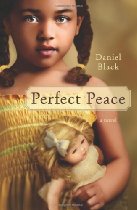
Reading Perfect Peace by Daniel Black words like intense, satisfying, funny, shocking, heart-rending and tragic help describe the gamut of emotions bubbling up from its pages. Never before have I read such a brotherly drama that tugs at the human heart. The author’s style is reminiscent of Tony Morrison’s early works with its folk lore quality and distinguishing contemporary realism. Anyone raised in a rural southern environment during the mid 20th century would have no problem relating to the setting of this Arkansas black community.
The story opens during the Spring of 1940 with the birth of Gus and Emma Jean Peace’s seventh son. Emma Jean’s long awaited desire and hope for a daughter are dashed but only momentarily. She resorts to blackmailing the mid-wife into silence then presents the child name Perfect to her husband and six sons as a girl and manages to carry out the masquerade for more than a half dozen years. We all know that Walter Scott’s quote “Oh what a tangle web we weave when we practice to deceive.” A calamity unfolds more intense than any Tennessee Williams psychological drama.
Probing themes like nurture vs. nature, the ignorance and superstitions associated with homophobia, and the generational consequences of parental cruelty. We follow Perfect’s growth and transformation from the perfect little girl to the confident man Paul along with the growth and development of his six brothers. It’s a journey of gratitude and forgiveness watching each child achieving success and a proper place in the world despite the parental missteps.
Daniel Black has done a superb job in the presenting these three dimensional characters as human and lovable despite their human flaws something required of every family. Thoroughly entertaining Perfect Peace is a great read I recommend it highly. 5 Stars



